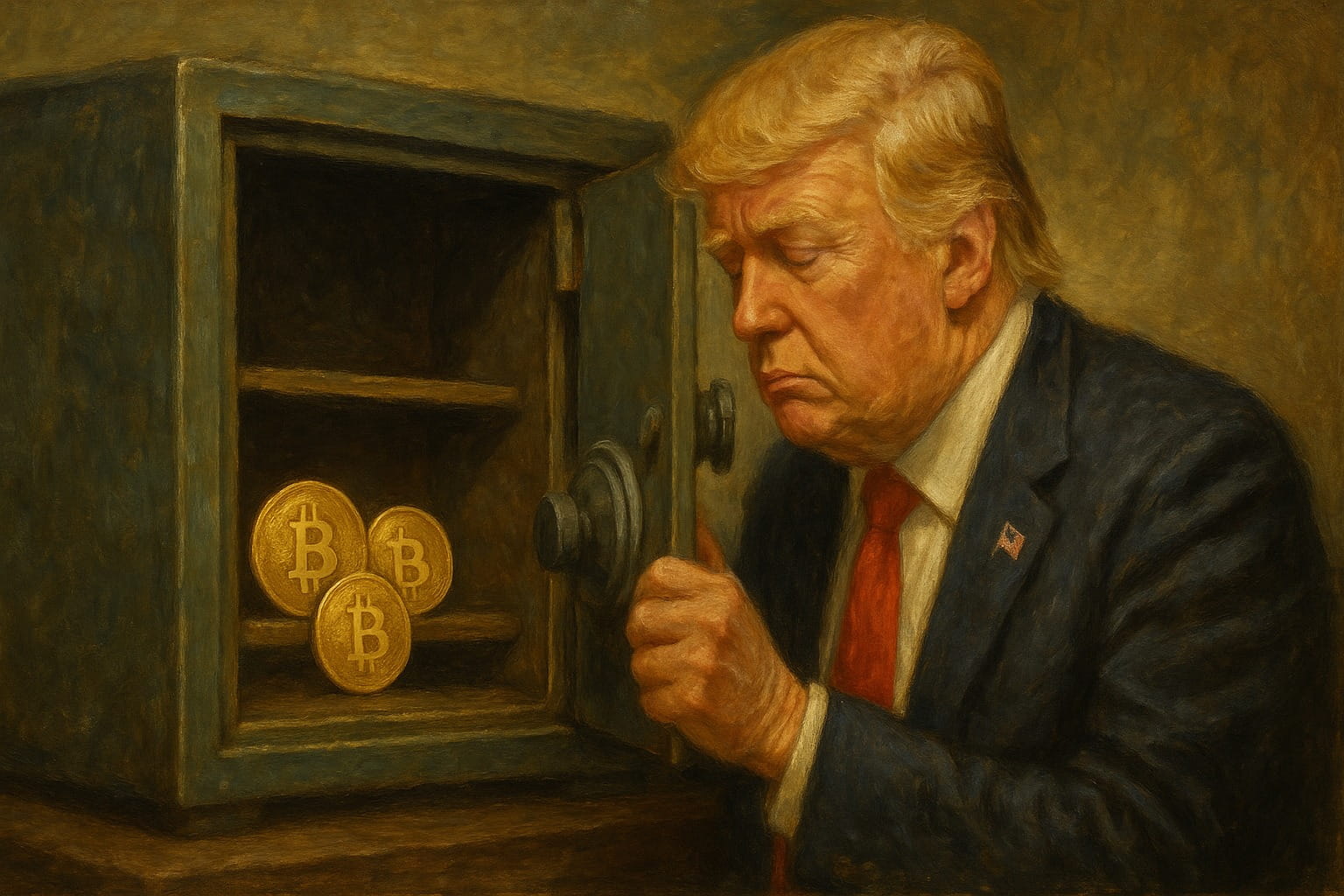
How much Bitcoin does the U.S. government still hold? An official document obtained under the Freedom of Information Act (FOIA) reveals that the U.S. Marshals Service actually holds only about 28,988 Bitcoins, far below the market expectation of nearly 200,000 coins. This news shocked the market and the political arena, especially as the Trump administration promotes the Bitcoin strategic reserve policy, raising doubts about whether it has fallen behind in the global Bitcoin race.
Holding only 29,000 coins, the U.S. government's Bitcoin inventory is far below expectations.
In March of this year, independent cryptocurrency journalist L0la L33tz submitted a request for disclosure of Bitcoin holdings to the U.S. Marshals Service under the Freedom of Information Act (FOIA), and the letter ultimately received shows that as of March this year, only 28,988 Bitcoins were held, valued at approximately $3.4 billion.

This figure presents a huge discrepancy compared to the widely believed '198,000 coins'. Blockchain analysis firms Arkham and BitcoinTreasuries estimated that U.S. federal agencies collectively hold about 198,012 Bitcoins, valued at approximately $23.4 billion.
In fact, the U.S. Marshals Service, as the main agency executing court orders, is responsible for managing and auctioning off confiscated assets from units like the FBI and IRS related to criminal cases, sanctions violations, and corporate fines. However, due to the lack of a unified public database, the true scale of the cryptocurrency assets held by the U.S. government has always lacked transparency, and the current data exposure is also surprising.
Is Trump's Bitcoin strategic reserve just an empty promise?
It is worth mentioning that this truth shows a significant gap with the 'Bitcoin Strategic Reserve' policy recently launched by the Trump administration. In March of this year, Trump signed an executive order designating Bitcoin as a national reserve asset and tasked the U.S. Treasury with managing this reserve. Relevant agencies will evaluate their legal authority to confirm whether they can transfer their held Bitcoin into the strategic reserve.
This policy is led by the crypto czar David Sacks, appointed by Trump, claiming to further purchase Bitcoin through a 'budget-neutral' approach and create a national-level crypto asset reserve. However, before these grand blueprints are implemented, the actual available Bitcoin reserves have already been significantly reduced, raising external doubts as to whether the policy is just another empty talk.
(How does the U.S. government accumulate Bitcoin at 'zero cost'? Analyzing the top 10 'budget-neutral' strategies)
Crypto-friendly Senator Lummis: The U.S. has fallen behind in the Bitcoin race
This data quickly drew responses from the political arena. Long-time Bitcoin supporter, Wyoming Senator Cynthia Lummis stated: 'If the U.S. has indeed sold off over 80% of its Bitcoin reserves, this is undoubtedly a strategic blunder that will set the U.S. back years in the global Bitcoin race.'
I’m alarmed by reports that the U.S. has sold off over 80% of its Bitcoin reserves—leaving just ~29,000 coins.
If true, this is a total strategic blunder and sets the United States back years in the bitcoin race. https://t.co/ciYf1uhy0x
— Senator Cynthia Lummis (@SenLummis) July 16, 2025
Lummis's concerns are evident; while other countries are actively positioning Bitcoin and other digital assets as future reserve assets, the U.S. may miss the opportunity for leadership due to delayed policies and divided attitudes. Especially in the context of crypto assets increasingly becoming geopolitical tools, this is not just a financial loss but could also be a strategic failure.
(Cynthia Lummis: U.S. military leadership strongly supports Bitcoin reserves, Trump media fundraising to buy BTC is visionary)
This article reveals that the U.S. Marshals Service disclosed that the government only holds 29,000 Bitcoins? Lummis is disappointed: the BTC race has fallen behind. First appeared in Chain News ABMedia.

